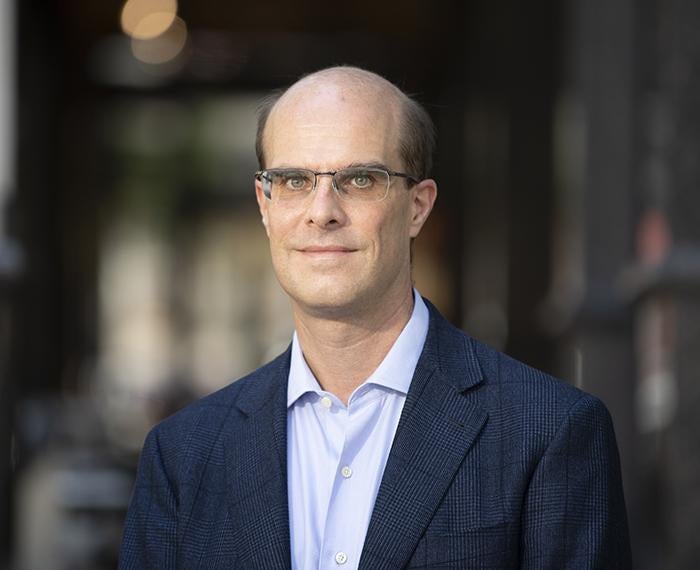
Subscribe to Pittwire Today
Get the most interesting and important stories from the University of Pittsburgh.The University of Pittsburgh named a dean for the School of Computing and Information

Following an extensive national search, Professor Bruce Childers has been named dean of the University of Pittsburgh’s School of Computing and Information (SCI), effective May 1. He has served as interim dean of the school since 2020, when founding dean Paul Cohen announced his intent to step down and return to the faculty.
In her message announcing the appointment, Provost and Senior Vice Chancellor Ann E. Cudd said, “Bruce’s leadership contributions at the University of Pittsburgh through the years are as impressive as they are substantial. As interim dean, he has brought together academic disciplines and histories in growing and nourishing the new School of Computing and Information into a community of dynamic culture, identity and ambition. He has set the foundation of people, practice and approach — ushering SCI toward a bold future of trans-disciplinarity for information-rich and data-driven discovery, innovation, inquiry and critique.”
Childers first joined the University in 2000 with an appointment in computer engineering. Since then, he’s held various roles including special assistant to the provost for data science and senior associate dean for strategic initiatives. In the latter role, he shaped SCI’s growth through faculty recruitment, development and mentoring, and created foundational policies and procedures. He was also chair of the Department of Information Culture and Data Stewardship from 2018 to 2020.
“As a Pitt faculty member, it is rewarding and a privilege to be named dean of the School of Computing and Information,” Childers said. “Since the school started in 2017, it has been an exciting, collaborative and dynamic place to be. SCI has attained much in its first years and will do even more as we reach our fifth anniversary in July. Our faculty are conducting impactful research and finding innovative ways to improve society. Our students apply their skills outside the classroom and make a positive difference seen throughout the community. Our graduates go on to be leaders in their field and create lasting change in the tech landscape, health care, government, industry and nonprofits.”
Noting how artificial intelligence and data touch multiple academic disciplines and nearly every facet of life, Childers added, “I am especially looking forward to collaborating on new education and research programs that connect partners from across campus. The need to equip students with computing and data skills and literacy has never been greater.”
Childers’ research interests include computer architecture, compilers and software development tools, and embedded systems. His recent works, including the Department of Defense-funded Open Center for Curation of Computer Architecture Modeling, have focused on novel technologies and cultural change to advance transparency, reuse and reproducibility of data science for accelerated discovery and reliable insight.
He has been recognized for his administrative and teaching leadership, including from the ACC Academic Leaders Network, and is a frequent presenter at conferences around the world.
Childers holds a PhD in computer science from the University of Virginia and a bachelor’s in computer science from the College of William and Mary.
— Kara Henderson

